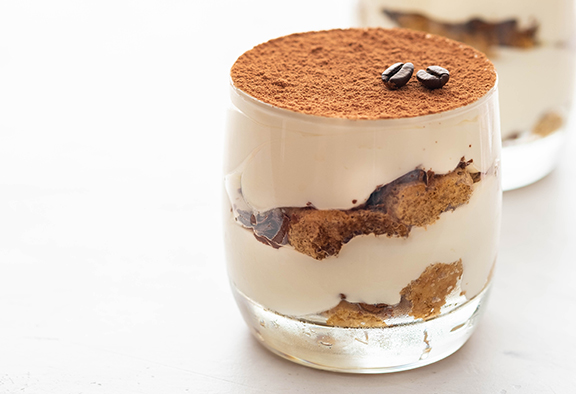March 26, 2021
Coffee & Diabetes: Is It Safe To Drink?
There are many misconceptions about consuming coffee and diabetes. Can one have too much? Is it safe? Are there health benefits? Should it be decaf? This piece delves deep into the specifics of coffee and diabetes.
Share This Story


Is It Safe For People With Diabetes To Drink Coffee?
When you’re living with diabetes, it’s important to put thought into everything you eat and drink – even something as seemingly harmless as your morning cup of coffee.
Unfortunately, the information surrounding coffee and diabetes can be confusing – and seemingly contradictory. So the question remains: is it safe to drink coffee if you’re a person who has diabetes?
Luckily for you, we can help. In this article, we’ll take an in-depth look at how coffee and diabetes interact – read on to learn all about how you can enjoy coffee while minimizing any negative effects.
Does Coffee Impact Diabetes?
If you’ve done some research into the effects of coffee on diabetes in the past, there’s a good chance you ended up more confused than you were before you started. It may sound as though coffee is paradoxically both good and bad for diabetes. What gives?
The key is understanding that coffee’s connection to diabetes is different for people who have diabetes and people who don’t. For most people, there’s evidence that coffee can help lower your risk of developing diabetes. Specifically, a 2014 Harvard study looking at two decades worth of data from 100,000 individuals found that people adding more than one cup of coffee to their daily diet lowered their risk of type 2 diabetes by 11 percent. Meanwhile, people who reduced their daily coffee intake by one cup increased their diabetes risk by 17 percent.
On the flipside, however, caffeine doesn’t seem to be helpful for people who already have diabetes. A study from 2004 found that people who have type 2 diabetes had higher blood glucose levels and insulin resistance if they consumed a caffeine capsule before eating.
Decaf: How To Safely Enjoy Coffee With Diabetes
If you’re a java junkie with a diabetes diagnosis, this information might be less than welcome – but it’s important to take it seriously as you work to get your blood sugar under control. The good news: there are still healthy ways to get your coffee fix while living with diabetes. Coffee also contains small amounts of some nutrients, including potassium, niacin and magnesium.
One of the most effective ways of accomplishing this is also simple – switch to decaf! By doing so, you’ll get the delicious flavor and some of the health benefits of coffee, all while avoiding caffeine’s negative effects on your blood sugar. It’s not quite the same experience, but you’ll still be able to enjoy drinking coffee without the risks.
If that’s not enough, take heart: a pilot study from 2014 suggests that drinking caffeine before a workout could potentially help lower blood sugar levels in people with diabetes. It’s important to note that there’s still a lot of research that needs to be done on this topic – the study in question only looked at eight test subjects. So while you shouldn’t plan on downing a cup of coffee before you head to the gym anytime soon, you might be able to do just that in the future.
Drinking Coffee? Don’t Sugar-Coat It
Now that we’ve covered the effects of caffeine on people who already have diabetes, let’s rewind a bit and look at what caffeine can do for people actively trying to avoid developing this disease. As we mentioned earlier, drinking moderate amounts of coffee has been linked to lowering the risk of developing Type 2 diabetes. It may also help lower your risk of developing other diseases, including Parkinson’s disease, and cardiovascular disease. Research has yet to determine the exact mechanisms behind some of these disease preventing benefits.
However, this doesn’t mean your next pumpkin spice latte will count as a health food! In fact, adding dairy products or sweeteners to your coffee could negate its anti-diabetes benefits.
Since popular specialty coffee drinks from major chains tend to be full of carbs and calories, you definitely won’t want to overindulge in these drinks. Drinking them too often could lead to weight gain. Weight gain could be a risk factor for developing type 2 diabetes. (If you do decide to drink the occasional sweet coffee drink, you can limit the impact they have on your health by choosing low-carb, low-fat options.)
Here are some more tips you can use to enjoy great-tasting coffee while cutting down on your diabetes risk:
- If you don’t want to drink your coffee black, consider unsweetened vanilla milk alternatives such as coconut milk, almond milk, flaxmilk and fat free milk as one way to increase your daily calcium and vitamin D intake.
- Use vanilla and cinnamon to flavor your drink without adding carbs.
- Ask for half the usual shots of flavored syrup with your coffee order – or cut the syrup out entirely.
How Much Java Is Too Much?
3-5 eight -ounce cups of coffee contain approximately 400 mg of caffeine, which is the most that is recommended daily for healthy adults. Certain groups may be at higher risk for negative side effects of caffeine, people with high blood pressure, the elderly, pregnant and breast-feeding women should consider limiting their intake and should discuss it with their health care provider.
Savor Coffee The Smart Way
Coffee can be a valuable tool if you’re trying to avoid developing diabetes, but it’s important to be aware of how you’re drinking it. And if you know you have diabetes, your best bet is to switch to decaf and skip on the added syrups and sugars to avoid blood sugar spikes.
Whether you’re working to manage your diabetes or lower your risk of developing this disease, US MED is here for you. If you want to learn more about managing diabetes in your everyday life, check out the “Living With Diabetes” section of our website!







